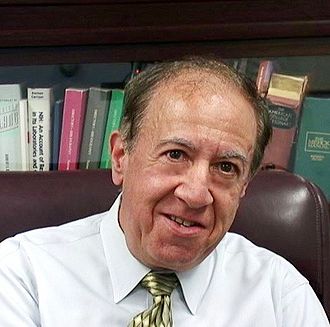Invited Speakers of TASSA 2018 Conference, Charles DeLisi

Charles DeLisi is the Metcalf Professor of Science and Engineering at Boston University, and also served as Dean of the College of Engineering from 1990 to 2000. Prior to moving to Boston University, he was Professor and Chair of Biomathematical Sciences and Professor of Molecular Biology at the Mount Sinai School of Medicine (1987–1989), Director of the United States Department of Energy's Health and Environmental Research Programs (1985–1987), Section Chief at National Institutes of Health (1975–1985), and Theoretical Division Staff Scientist at Los Alamos National Laboratory (1972–1975).
In 1999 he initiated the Nation's first PhD program in Bioinformatics, with more than 150 Ph.D. alumni in Bioinformatics and Systems Biology, the Boston University program remains the largest program in the world.
DeLisi was an early champion of the controversial idea that in cell biology, just as in the physical sciences, the mathematical formulation of concepts could predict phenomena that would not otherwise be apparent, and could thereby drive experimental research in new directions. The approach is seen in a number of investigations. His 1979 paper predicted, several years in advance of experimental demonstration, that the signal generated when nerve growth factor binds its plasma membrane receptor is transduced by receptor dimerization.
In immunology, DeLisi was a strong proponent of the controversial hypothesis that the response of T-cells to antigenic stimulation involves formation of a ternary complex. Predictions based on the mathematical formulation of that idea, the amphipathic hypothesis, provided strong support for what was ultimately demonstrated conclusively by X-ray crystallography. The mathematical methods, developed initially with Jay Berzofsky, were subsequently extended and modified by many others, presaging the now widely used bioinformatics approaches to guide the design of peptide vaccines.
At the same time, the Section on Theoretical Immunology (STI), which DeLisi founded several years earlier at the NIH, had introduced the use of supervised learning algorithms for the identification of functional regions in DNA and proteins. The first database integrating DNA and protein sequences with analytical tools was developed in collaboration with Minoru Kanehisa, who was then a Visiting Fellow at STI.
In 1986, as Director of the U.S. Department of Energy’s (DOE) Health and Environmental Research Programs, DeLisi and his advisors proposed, planned and defended before the White House Office of Management and Budget and the Congress, the Human Genome Project. In addition to the medical and scientific advances engendered by the Human Genome Project, it and its progeny have had a profound effect on the sociology and culture of cell biology. The computer science community in particular moved with extraordinary dexterity into cell biology, transforming the field and creating a record of discovery destined to provide material for a remarkable story in the sociology of late 20th and early 21st Century science. Computational and mathematical methods are now widely viewed as central to progress in cell biology, a change that is forcing even the most conservative universities to respond to a new paradigm in biological education.
DeLisi is recipient of numerous awards including the Presidential Citizens Medal, awarded to him by President Clinton for his seminal role in initiating the Human Genome Project.